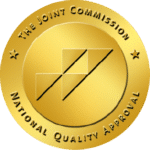Send Your Message
Tarzana, South Bay, and Santa Monica
Ketamine Therapy, TMS
and CBT.
This Program is Changing Lives.
IOP level of treatment is 3 or more hours per day for 3 to 5 days per week.
We are not in network with any PPO insurance plans, but we can accept them as an out-of-network provider.
The birth of a baby can trigger a jumble of powerful emotions, from excitement and joy to fear and anxiety. But it can also result in something you might not expect — depression.
Most new moms experience postpartum “baby blues” after childbirth, commonly including mood swings, crying spells, anxiety, and difficulty sleeping. Baby blues typically begin within the first two to three days after delivery and may last up to two weeks.
But some new moms experience a more severe, long-lasting form of depression known as postpartum depression. Rarely, an extreme mood disorder called postpartum psychosis also may develop after childbirth.
Postpartum depression isn’t a character flaw or a weakness. Sometimes it’s simply a complication of giving birth. If you have postpartum depression, prompt treatment can help you manage your symptoms and help you bond with your baby.
We can help today. Call us. 310-571-5957 to talk to our staff and find out options.

Signs and symptoms of baby blues — which last only a few days to a week or two after your baby is born — may include:
Postpartum depression may be mistaken for baby blues at first — but the signs and symptoms are more intense and last longer. They may eventually interfere with your ability to care for your baby and handle other daily tasks. Symptoms usually develop within the first few weeks after giving birth but may begin earlier ― during pregnancy ― or later — up to a year after birth.
Postpartum depression signs and symptoms may include:
Untreated, postpartum depression may last for many months or longer.
With postpartum psychosis — a rare condition that typically develops within the first week after delivery — the signs and symptoms are severe. Signs and symptoms may include:
Postpartum psychosis may lead to life-threatening thoughts or behaviors and requires immediate treatment.
New fathers can experience postpartum depression, too. They may feel sad or tired, be overwhelmed, experience anxiety, or have changes in their usual eating and sleeping patterns ― the same symptoms mothers with postpartum depression experience.
Young fathers with a history of depression who experience relationship problems or financial struggles are most at risk of postpartum depression. Postpartum depression in fathers ― sometimes called paternal postpartum depression ― can have the same negative effect on partner relationships and child development as postpartum depression in mothers can.
If you’re a new father experiencing symptoms of depression or anxiety during your partner’s pregnancy or the first year after your child’s birth, talk to your healthcare professional. Similar treatments and supports provided to mothers with postpartum depression can be beneficial in treating postpartum depression in fathers.

If you’re depressed after your baby’s birth, you may be reluctant or embarrassed to admit it. But if you experience any symptoms of postpartum baby blues or postpartum depression, call your doctor and schedule an appointment. If you have symptoms that suggest you may have postpartum psychosis, get help immediately.
It’s essential to call your doctor as soon as possible if the signs and symptoms of depression have any of these features:
If you have thoughts of harming yourself or your baby, immediately seek help from your partner or loved ones in taking care of your baby and call 911 or your local emergency assistance number to get help.
Also, consider these options if you’re having suicidal thoughts:

People with depression may not recognize or acknowledge that they’re depressed. They may not be aware of the signs and symptoms of depression. If you suspect a friend or loved one has postpartum depression or is developing postpartum psychosis, help them seek medical attention immediately. Don’t wait and hope for improvement.
Breastfeeding and PPD are sometimes linked. For example, a mother who struggles to breastfeed her child may feel frustrated and lose confidence in her breastfeeding ability. She may also be more likely than other moms to experience PPD symptoms.
On the other hand, if breastfeeding goes smoothly and requires minimal effort, it can help strengthen the bond between a mother and her child. In this situation, a mom dealing with PPD may benefit from breastfeeding her child because this maternal bond may help alleviate her PPD symptoms.


For moms who are struggling with PPD and are searching for the proper depression treatment while breastfeeding, consulting with a doctor is vital. A doctor consultation allows a mom to understand her PPD treatment options and find a safe, effective way to manage her PPD symptoms.
For moms dealing with PPD, the decision to breastfeed can be difficult. Ultimately, there are two factors that these moms should consider: their breastfeeding goals and antidepressant medications.
The American Academy of Pediatrics recommends that moms breastfeed exclusively for the first six months after childbirth, followed by a continuation of breastfeeding for one year or longer. At the same time, baby formula offers a viable alternative to breastfeeding. Suppose a mom believes breastfeeding contributes to PPD symptoms. In that case, the formula ensures her baby will get the vitamins and nutrients necessary for healthy growth and development while allowing the mom to care for her mental health.
Comparatively, a doctor may prescribe an antidepressant medication to help a mom address her PPD symptoms. Many antidepressants are safe to use during breastfeeding. Conversely, it is paramount to check with a doctor to find out if there are any risks associated with an antidepressant that they prescribe to treat PPD.
Running, walking, or other exercise helps boost the production of endorphins, the feel-good chemicals in the brain. Thus, developing and following an exercise regimen could help a mom feel good about herself and combat her depression symptoms.
Foods that contain omega-3 fatty acids and folic acid have been shown to help relieve depression symptoms. Plus, avoiding high-fat and sugary foods may help a mom improve her mood.
It may seem virtually impossible sometimes to get a good night’s sleep, particularly for a mom focused on caring for her baby. By seeking out and accepting childcare from family members, friends, and other loved ones, a mom can take a break and get the sleep she needs to be happy and healthy.
In addition to the therapies above, Transcranial Magnetic Stimulation is a popular depression treatment option for new moms. TMS therapy does not require anesthesia, electrical shocks, or medications, making it a top alternative to common depression treatments.
A TMS therapy program is tailored to a patient. It usually involves five treatment sessions per week, lasting about 20 minutes, over four to six weeks. A magnetic coil is safely placed on a patient’s head during TMS therapy. Next, the coil generates magnetic pulses that stimulate neurons in specific brain regions responsible for mood. In doing so, TMS therapy helps release serotonin, norepinephrine, and other neurotransmitters to alleviate depression symptoms.
TMS therapy is safe and noninvasive, and a patient can immediately resume their normal activities after a TMS therapy session. Throughout a six-week TMS therapy program, patients notice improvements in sleep and a reduction in the severity of their depression symptoms. Over 70% of TMS patients experience a significant decrease in symptoms, with 49% achieving complete remission.

If you’re seeking support or if you’d like to learn more about our services, please don’t hesitate to reach out. Our team at Clear Mind Treatment is here to answer your questions, provide more information, and guide you through the process of starting your journey to mental wellness.
Certification Number: 191268AP
Expiration: 9/30/2025



Clear Mind Treatment is an intensive outpatient healing center that helps individuals struggling with depression, anxiety, trauma and related mental health concerns. Our beautiful, private facility welcomes clients to take part in our uniquely individualized treatment program.

LGBTQIA-Friendly Environment

We proudly work with veterans, police officers, firefighters, and first responders. Post-traumatic stress disorder (PTSD), trauma therapy and treatment. Have you or a loved one witnessed and or lived through a traumatic, scary, shocking or stressful event? PTSD therapy and treatment might be right for you!
